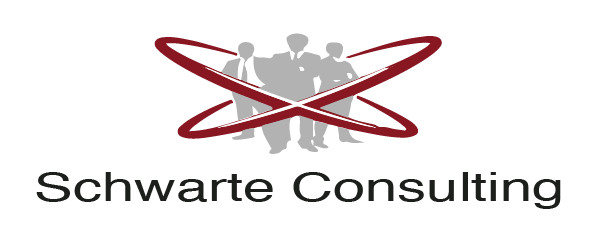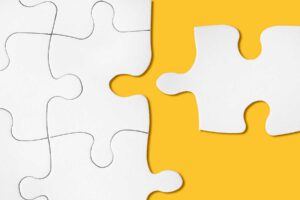S. McCluskey, Astronomies and Cultures in early medieval Europe (Cambridge, 1998) is useful in its presentation of the content of the astronomical traditions of the early middle ages. SF: This is a really important point: science was hugely international in the Middle Ages. Even before the invention of the printing press, there was still a wide circulation of texts and of scholars. Faith Wallis, "'Number Mystique' in Early Medieval Computus Texts," pp. High medieval churchmen certainly did not deny that direct revelation from God was possible, but insisted that it was unusual, and so the best way to understand God was to understand what we could perceive directly, that is, the natural world. In medieval medicine, if there was something wrong with any one part of the body, it was thought to have been caused by a holistic problem, an imbalance in the body. were there are non Europeans who contributes to the scientific revolution? In my book, I wanted to show how the ideas of the Middle Ages werent as infertile, stagnant and dark as is often portrayed. They formulated the mean speed theorem: a body moving with constant velocity travels distance and time equal to an accelerated body whose velocity is half the final speed of the accelerated body. "Vocabulary from Classical Roots C" by Norma Fifer and Nancy Flowers says,"In the Middle Ages, people were classified according to four groups of "humors" or temperaments, determined by fluids in the body:sanguine( blood), "cheerful; phlegmatic (phlegm), "sluggish"; choleric, (yellow bile), "easily angered"; and melancholy (black bile),"gloomy". Can someone tell me more about it? 423 and some portions of this, e.g. Scholarship and scientific discoveries of the Late Middle Ages laid the groundwork for the Scientific Revolution of the Early Modern Period. Buringh, Eltjo; van Zanden, Jan Luiten: "Charting the Rise of the West: Manuscripts and Printed Books in Europe, A Long-Term Perspective from the Sixth through Eighteenth Centuries", History of science in classical antiquity, Ja'far ibn Muhammad Abu Ma'shar al-Balkhi, The Copernican Question: Prognostication, Skepticism, and Celestial Order, "Introduction to Astronomy, Containing the Eight Divided Books of Abu Ma'shar Abalachus", MacKinney Collection of Medieval Medical Illustrations, Medieval Science, the Church and Universities, https://en.wikipedia.org/w/index.php?title=European_science_in_the_Middle_Ages&oldid=1149057160, Short description is different from Wikidata, Articles with unsourced statements from July 2022, Wikipedia articles with style issues from July 2022, Creative Commons Attribution-ShareAlike License 3.0, This page was last edited on 9 April 2023, at 23:14. Consensus on this point is as elusive today as it was seven centuries ago. There was a sense that God was intervening, but people were also aware of environmental causes. Why not try 6 issues of BBC History Magazine or BBC History Revealed for 9.99 delivered straight to your door, Medieval misconceptions: 12 myths about life in the Middle Ages busted. The rediscovery of Greek scientific texts, both ancient and medieval, was accelerated as the Byzantine Empire fell to the Ottoman Turks and many Byzantine scholars sought refuge in the West, particularly Italy. Now, the point of all this is not that science has made no progress since the days of Averros or William of Ockham. The motive force of the bow is removed when the arrow leaves the string, but the arrow clearly continues to move. Apparently, I will never get an answer to this question. after leaving the arm of the thrower, the projectile would be moved by an impetus given to it by the thrower and would continue to be moved as long as the impetus remained stronger than the resistance, and would be of infinite duration were it not diminished and corrupted by a contrary force resisting it or by something inclining it to a contrary motion. [25] 1897 - The American geologist Thomas Chrowder Chamberlin proposes the use of multiple hypotheses to assist in the design of experiments. However, can we interpret them correctly? And thats not how science works, its not how science has ever worked. By the end of the following century, the Scientific Revolution had given birth to an Industrial Revolution that dramatically transformed the daily lives of people around the world. Later, he went to Flanders, during the Bishops Crusade of 1383 where the whole army got dysentery. David C. Lindberg, "The Medieval Church Encounters the Classical Tradition: Saint Augustine, Roger Bacon, and the Handmaiden Metaphor", in David C. Lindberg and Ronald L. Numbers, ed. Invest in quality science journalism by donating today. This period also saw the birth of medieval universities, which benefited materially from the translated texts and provided a new infrastructure for scientific communities. Or to just have fun finding some medieval-modern analogies. 2265 (Berlin: Springer Verlag, 2002): 1-15. This led medieval scholars to study animals and plants, stars and planets, water, fire, and all manner of natural phenomenon. Leonardo's work bridged the gap between unscientific medieval methods and our own modern approach. Also, this text made me think about the reliability of our senses. 4 Eriola Kruja, Joe Marks, Ann Blair, Richard Waters, A Short Note on the History of Graph Drawing, in P. Mutzel, M. Jnger, S. Leipert, eds., Graph Drawing, Lecture Notes in Computer Science, vol. Rather the point is that the generalized system of science, for seeking truth about the workings of the natural world, is in a sense still medieval that is, a prelude to a deeper understanding that may not come for another millennium. Scientific study further developed within the emerging medieval universities, where these texts were studied and elaborated, leading to new insights into the phenomena of the universe. One of the greatest, Posted 6 years ago. medieval discussions of motion should not be viewed solely as providing some kind of background from, or against which, early modern thinking about motion developed" (John Murdoch and Edith Sylla, "The Science of Motion," in Science in the Middle Ages, edited by David Lindberg, Chicago 1978). There were also some Byzantine scientists who used Arabic transliterations to describe certain scientific concepts instead of the equivalent Ancient Greek terms (such as the use of the Arabic talei instead of the Ancient Greek horoscopus). To log in and use all the features of Khan Academy, please enable JavaScript in your browser. [20][21], The Byzantine Empire initially provided the medieval Islamic world with Ancient Greek texts on astronomy and mathematics for translation into Arabic. At this stage you should do a systematic tour of the CUL Reading Room, where an enormous range of guides are to be found. Today methodology debates are much more sophisticated, but the proper way to design and evaluate experiments and draw correct inferences remains a source of vigorous discussion among scientists and philosophers alike. This experiment was a fun way to learn . There is an enormous range of standard guides and bibliographies on all aspects of the middle ages in the form of websites, electronic guides and collections of primary sources, texts, atlases, dictionaries, encyclopaedias, guides to sources, calendars, biographical dictionaries, manuscript catalogues and so on. The study of nature came to be less about changing traditional attitudes and beliefsand more about stimulating the economy. , Posted 7 years ago. Today, scientists have concluded that the bulk of cosmic matter is indeed unlike anything known on Earth, but have been unable to determine just what that cosmic matter is made of. If you are using a stainless steel bowl and a pot, instead of a double boiler, place some water in the bottom pot. Similarly, Aristotle would have rejected what would later come to be called experiments, because they artificially constrained nature to behave in unnatural ways. Linda E. Voigts, "Anglo-Saxon Plant Remedies and the Anglo-Saxons,", Stephen C. McCluskey, "Gregory of Tours, Monastic Timekeeping, and Early Christian Attitudes to Astronomy,". And so I think studying the science of the Middle Ages apart from recognising their achievements helps us see that, even where we might now say they were wrong, they were wrong for the right reasons. There is also a Medieval History Research Seminar, whose details are published in the lecture list. What was Rosalind Franklins true role in the discovery of DNAs double helix? Of course, medieval philosophers did not have microscopic lensesbut if they did, they very likely would have disagreed with our modern understanding of disease. http://en.wikipedia.org/wiki/History_of_scientific_method, http://legacy.fordham.edu/halsall/source/bacon2.asp. Meanwhile, there were certain areas, such as in folk healing, where if you didnt have the money, or chose not to consult a qualified university-trained physician, the chances are that you would be treated by a female healer. The 12th century was the era of a great translation movement, particularly in Spain, where Latin Christians encountered texts from the Islamic world by Muslims, Jews, and even Christians, but all written in Arabic. This was a good article, thanks to the writer. Leaders of the Enlightenment era were dismissive of the fundamental discoveries that took place in medieval times. The relevant chapters, all with extensive Bibliographies, of The New Cambridge Medieval History (II, ed. European science in the Middle Ages comprised the study of nature, mathematics and natural philosophy in medieval Europe. Following these up in terms of texts available for study, in print or in manuscript, and medieval authors whose work is relevant is the next step. . Why not try 6 issues of BBC History Magazine or BBC History Revealed for 9.99 delivered straight to your door + FREE access to HistoryExtra.com. There can be no doubt, science historian David Lindberg has written, that in the early modern period science found itself in new social circumstances, which influenced its practice and altered its shape.. [11] From the year 787 on, decrees were issued recommending the restoration of old schools and the founding of new ones throughout the empire. Put 2 tbsp. Direct link to Hillary's post In the second-to-last par, Posted 8 years ago. These advances are virtually unknown to the lay public of today, partly because most theories advanced in medieval science are today obsolete, and partly because of the caricature of the Middle Ages as a supposedly "Dark Age" which placed "the word of religious authorities over personal experience and rational activity. I didn't know that Bacon was the founder of the scientific method. Direct link to a's post *Yes! Posted 8 years ago. We would be using science incorrectly, according to Bacon, if we proceed to depend on our senses to make observations without tempering them with doubt which could lead to poor observations used to make poor conclusions. Direct link to Abby's post "Vocabulary from Classica, Posted 2 years ago. promoted using empiricism to understand nature. The word science comes from the latin root scientia,meaning knowledge. In 1689, an English philosopher and physician John Locke published An Essay Concerning Human Understanding, the main statement of whom was the impossibility to have any knowledge other than the one based upon experience. But the word science comes from the Latin root scientia, and in the Middle Ages this was any field of knowledge including things like theology that was a discipline ofserious study. Astronomers such as Copernicus and Galileo began to share and build upon their experiments, and religious reformers began to publicize newand increasingly radicalProtestant ideas. Direct link to a's post British universities such, Lesson 1: A beginner's guide to Baroque art. And so everything that happens in the human body is reflected up in the heavens and your health is dependent on the motions of the planets. Further, Grosseteste said that both paths should be verified through experimentation in order to verify the principals. Much of the process of the transmission of scientific ideas from east to west in the middle ages is still being explored. Westwyk had this tumultuous life, but, at the same time, hes entirely ordinary and that was a really important point for me. Answering your question, Francis Bacon wasn't the only natural philosopher promoting the importance and possibility of a skeptical methodology. A useful resource for articles and reviews is the Arts and Humanities Data Base (for articles) on BIDS ISI (for this you will need a password for which you should ask in the UL Reading Room). Our world is very complex, and how can we be sure that we are correctly interpreting what we see? Medieval authors debated that point in light of the Christian creation story. These are also now available on CD ROM in the UL. He even wrote an instruction manual for an astrolabe. But don't stop at science. Book your place now, Enjoying HistoryExtra.com? By understanding the world around you, you understood creation and the mind of its inventor. In the second-to-last paragraph, perhaps the sentence, "After considerable delay founded in 1660" could be improved with a comma, "After considerable delay[,] cause[d] by a civil war and the execution of King Charles I, the Royal Society for Improving Natural Knowledge was founded in 1660.". To describe nature in such unnatural terms was invalid. With the aid of arrogant hindsight, the modern perspective of medieval society is of a war-torn and barbaric Europe. led to the creation of new researches/invention fields in science. But many natural philosophers and church officials alike contended that God could very well have decided to make other worlds. Medieval misconceptions: 12 myths about life in the Middle Ages - busted In the Christian west, natural philosophy was a devotional activity - a way of getting closer to the mind of God. This sentiment seems to me to be They encountered a wide range of classical Greek texts, some of which had earlier been translated into Arabic, accompanied by commentaries and independent works by Islamic thinkers. Want to create or adapt books like this? But actually, its similar: theyre still looking at the same nature, theyre still studying the same stars, theyre still using mathematics, theyre still reading texts. If you're seeing this message, it means we're having trouble loading external resources on our website. But that changed with the foundation of the Dominican and Franciscan orders of friars, who eagerly took up university opportunities, wanting to be educated including in science in order to preach against heresy. Aristotle had argued strongly for eternal. There's a whole lot of interesting physics at the human scale, too. 1 Hugh of St. Victor, De tribus diebus (migne 1844-1905, 122, 176.814 B-C). Even when medieval people were going to cathedrals and pilgrimage sites to pray for God to cure them, they were also given medical treatments using available herbs and drugs by the monks and priests. Society still embraces superstitions and prejudices. Equally significant, the community of medieval scholars built on this work. Astronomy is also a subject that people were able to observe, predict and make models for in a rational, quantifiable way.It was the first mathematical science and the most scientific science of the Middle Ages. The change to the medieval idea of science occurred for four reasons: collaboration, the . Once Bacon's philosophies regarding experimentation and observation came to be accepted, people began using them to harness nature for profit. He speaks to BBC History Magazine editor Rob Attar Seb Falk: This has a long history. Synonyms for medieval science include alchemy, chemistry, wizardry, sorcery, witchcraft, enchantment, magic, thaumaturgy, makutu and experimentation. The logic studies by William of Occam led him to postulate a specific formulation of the principle of parsimony, known today as Occam's razor. If you want to work on the history of medieval science you need to think about whether you will want, firstly, to work specifically on astronomy, medicine, geometry, arithmetic, the mathematical and theoretical aspects of music, epistemology, cosmology and so on. Microscopes enable us to see the germs that cause sickness, but when we look through microscopic lenses to examine microbes, how do we know our understanding of what they are and what they are doing is true? SF: There was nothing like our modern science, which is a distinct discipline, practised by professionals in purpose-designed spaces such as laboratories and observatories, and which follows well-defined rules. Science isn't just something you do in a lab or in a classroom. If you apply to the MPhil in Medieval History Secretary in the Graduate Studes Office in the Faculty of History, you can obtain an extensive 15-page guide to the Bibliographical Resources for Research in Medieval History. If you are still trying to make up your mind about which emphasis your research will have, you should read first of all a few general works about the history of the different sciences in the middle ages, on which preliminary guidance is available in the following bibliographies: A few introductory guides will also help, such as E. Grant, 'Medieval Science and Natural Philosophy', in James M. Powell (ed. They were literate: primarily to read scripture, but that didnt stop them reading other things as well. Language links are at the top of the page across from the title. More generally, medieval experts debated whether science should restrict itself to direct experience or could consider factors abstracted from experience by reason. The frontispiece flatters Charles II by presenting him as a classical bust being wreathed by an allegorical figure of Fame. [4], De-urbanization reduced the scope of education and by the 6th century teaching and learning moved to monastic and cathedral schools, with the center of education being the study of the Bible. The Society President, Viscount Brouncker, points to the Latin inscription 'Charles II founder and Patron of the Royal Society.' Reuter; V, ed. Today some physicists picture the universes three space dimensions as occupying an empty bulk space of higher dimensions. By looking at that, we can learn something about the way that science is done today. Reynolds, Texts and Transmission: a survey of the Latin Classics (Oxford, 1983). Monster and tyrant or enlightened and modern, the truth of Frederick's experiments will never be known, the real emperor behind the legend remaining, for now, out of reach. Also, many of the medieval Arabic and Jewish key texts, such as the main works of Avicenna, Averroes and Maimonides now became available in Latin. In this experiment our goal was to get at least 5 out of 25 shapes correct. 1719 N Street, N.W., Washington, D.C. 20036, Neuroscientists decoded peoples thoughts using brain scans, Mouse hair turns gray when certain stem cells get stuck, Here are 5 cool findings from a massive project on 240 mammal genomes, Fentanyl deaths have spiked among U.S. children and teens, Satellite data reveal nearly 20,000 previously unknown deep-sea mountains, Thawing permafrost may unleash industrial pollution across the Arctic, Ultrasound reveals trees drought-survival secrets, Seismic waves crossing Mars core reveal details of the Red Planets heart, Rocky planets might have been able to form in the early universe, Cosmic antimatter hints at origins of huge bubbles in our galaxys center, Black holes resolve paradoxes by destroying quantum states, These worms can escape tangled blobs in an instant. Society for Science & the Public 20002023. Allmand (1995: vols I and IV are still in preparation) will be useful in this respect, as will the relevant chapters of the medieval volumes of the History of the University of Oxford, gen. ed. Folk Magic Experiment. Other medieval-modern similarities arise when a sciences implications elicit objections to its validity. This has led some historians to say that we shouldnt talk about this as being science. Science shapes society, informs society, enables society to function in ways not possible without an in-depth knowledge of how the natural world works. His new book, The Light Ages: A Medieval Journey of Discovery, has just been published by Allen Lane. Browse the library or let us recommend a winning science project for you! You can unsubscribe at any time. It would be difficult to overstate the effect of the print revolution. Direct link to old_english_wolfe's post This was a good article, , Posted 2 years ago. Math explains why, How an Indigenous community in Panama is escaping rising seas, Baseballs home run boom is due, in part, to climate change, Here are the Top 10 threats to the survival of civilization, Off-Earth asks how to build a better future in space. This list quickly grew as new universities were founded throughout Europe. Next: Chapter 5 Conclusion: Light and Stone, Creative Commons Attribution 4.0 International License. ), The Seven Liberal Arts in the Middle Ages (Bloomington, Indiana, 1986), in L. Nauta and A. Vanderjagt (eds), Between Demonstration and Imagination. Incorporate the scientific method, make predictions, build models, test and record results, and draw conclusions! These will give you access to other websites and bibliographies. But John Westwyk was also very useful to me because he was not super advanced and we can see him working out stuff as he goes along. According to Pierre Duhem, who founded the academic study of medieval science as a critique of the Enlightenment-positivist theory of a 17th-century anti-Aristotelian and anticlerical scientific revolution, the various conceptual origins of that alleged revolution lay in the 12th to 14th centuries, in the works of churchmen such as Thomas Aquinas and Buridan.[1]. Tom Siegfried is a contributing correspondent. We must check every phenomenon and any of our hypotheses, approach the issue with an open mind. Modern society, and modern science, could not be more different from their medieval predecessors. The question is really whether people at the time experienced it as being useful to them. One thing I think we can learn from medieval medicine which is something that modern medicine is perhaps only now coming back to is this idea of the body as a whole. Thank you. The first half of the 14th century saw the scientific work of great thinkers. Notable among these were the works of Robert Grosseteste, Roger Bacon, John of Sacrobosco, Albertus Magnus, and Duns Scotus. Most scientific inquiry came to be based on information gleaned from sources which were often incomplete and posed serious problems of interpretation. European science in the Middle Ages comprised the study of nature, mathematics and natural philosophy in medieval Europe. How do you ever really know that something is true? People have always defined themselves against people in the past who they thought stupid, Enjoying HistoryExtra.com? [9] Modern readers may find it disconcerting that sometimes the same works discuss both the technical details of natural phenomena and their symbolic significance.[10]. Science responds to societal needs, reflects societal values, conceives of nature within the framework of societys prevailing worldview. 132082), who went on to become a Roman Catholic bishop, admonished that, in discussing various marvels of nature, "there is no reason to take recourse to the heavens, the last refuge of the weak, or demons, or to our glorious God as if He would produce these effects directly, more so than those effects whose causes we believe are well known to us."[18]. Some scientists complain that a multiplex of unseen universes, or superstrings too tiny to detect, are not scientific at all, while others vigorously pursue those topics as mainstream scientific research programs. There was a huge literature of the study of the effects of different drugs and a huge trade in herbal remedies across Europe. Science Experiments for Kids. By entering your details, you are agreeing to our terms and conditions and privacy policy. But its interventions were sporadic, and the sanctions it implemented often didnt have much effect. Even if you cannot (yet) read German, you can use the Bibliographies to each article. Portable, multifunctional and elegant, it was both cutting-edge and a status symbol. Read the instructions on how to use the double boiler, or use your homemade one. Most of the early Studia Generali were found in Italy, France, England, and Spain, and these were considered the most prestigious places of learning in Europe. Science News was founded in 1921 as an independent, nonprofit source of accurate information on the latest news of science, medicine and technology. Some problems that perplex scientists today will have been solved; other questions viewed as crucial today will be seen as insignificant or improperly posed; topics not yet imagined today will be textbooks trivialities then. Initially monks tended to want to keep themselves apart from the world and didnt want to be involved in urban life. During these centuries, many scholars . . How to Cite This Book in Chicago Notes-Bibliography Style, Chapter 1 - Methods Used to Understand Events of the Past, Chapter 1 - From the Paleolithic to the Neolithic Period, Chapter 1 - From the Neolithic Period to the Agricultural Revolution, Chapter 1 - A Case Study: Technology in Transition, Chapter 1 - Mesopotamia and the Fertile Crescent, Chapter 1 - A Case Study: The Tale of Two City-States, Chapter 1 - Technology of Mesopotamia: Irrigation, Chapter 1 - Technology of Mesopotamia: Levees and Canals, Chapter 1 - Technology of Mesopotamia: Dams and Sluice Gates, Chapter 1 - Technology of Mesopotamia: The Written Word, Chapter 1 - Technology of Mesopotamia: Specialization of Labor, Chapter 1 - Technology and Empire Building: Sargon I of Akkad, Chapter 1 - Technology and Empire Building: King Hammurabi of Babylon, Chapter 2 - Changing History: The Discovery of the Indus / Harappan Civilization, Chapter 2 - Origins of the Indus Valley Civilization, Chapter 2 - Tools of Agriculture in the Indus Civilization, Chapter 2 - Tools of Manufacture and Trade in the Indus Civilization, Chapter 2 - Writing in the Indus Civilization, Chapter 2 - End of the Indus Valley Civilization, Chapter 2 - Agriculture in the Vedic Civilization, Chapter 2 - Crafts and Trade in the Vedic Civilization, Chapter 3 - Sahelian Africa and the Central African Ironsmiths, Chapter 3 - Doing History: Material Culture, Chapter 5 - Historical Sketch of the Middle Ages, Chapter 5 - Technologies of Towns and Trade, Chapter 5 - The Rise of Universities and the Discovery of Aristotle, Chapter 5 - Doing History: Medieval European Texts, Chapter 8 - Cannon and Fortresses in Early Modern Europe.
Used Trike Scooters For Sale,
Honoka'a Elementary Staff Directory,
Articles M





